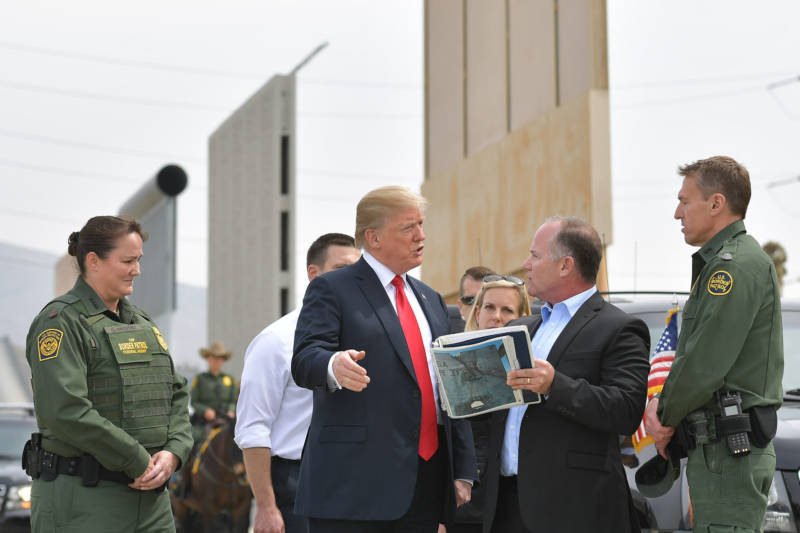House Democrats on Friday introduced a resolution to block the national emergency declaration that President Donald Trump issued to fund his long-sought wall along the U.S-Mexico border.
House Speaker Nancy Pelosi, D-Calif., said the House would vote on the measure on Tuesday.
This comes as California, along with 15 other states, filed a lawsuit against the Trump Administration over the emergency declaration. California Attorney General Xavier Becerra announced the suit by saying, "We’re suing President Trump to stop him from unilaterally robbing taxpayer funds lawfully set aside by Congress for the people of our states."
The move sets up a fight that could result in Trump's first veto. It starts the clock on a constitutional clash between Trump and Democrats and sets up a vote by the full House as soon as next week.
The Democratic-controlled House is sure to pass the measure, and the GOP-run Senate may adopt it as well despite Trump's opposition.
"I’m confident that most Democrats will vote for it in the House," said Bay-Area Congresswoman and resolution co-sponsor Barbara Lee. "I hope we get Republican support because this should be bipartisan. Because it’s really about the constitution and the separation of powers."
Any Trump veto would likely be sustained, but the upcoming battle will test Republican support for Trump's move, which even some of his allies view as a stretch — and a slap at lawmakers' control over the power of the federal purse.
Funding for the border wall has been in contention since the start of the year when the inability to settle on a budget resulted in the longest government shutdown in history. Causing issues at airports, national parks and wage delays for federal workers.
A staff aide introduced the measure during a short pro forma session of the House in which Rep. Don Beyer, D-Va., presided over an almost empty chamber.
"What the president is attempting is an unconstitutional power grab," said Rep. Joaquin Castro, D-Texas, the sponsor of the resolution, on a call with reporters. "There is no emergency at the border."
Trump's declaration of a national emergency gives him access to about $3.6 billion in funding for military construction projects to divert to border fencing. But the administration is more likely to tap funding from a federal asset forfeiture fund and Defense Department anti-drug efforts first.
Pelosi said that the House measure would "reassert our system of checks and balances."
Should the House and the Senate initially approve the measure, Congress seems unlikely to muster the two-thirds majorities in each chamber that would be needed later to override a certain Trump veto.
The measure to block Trump's edict will be closely watched in the Senate, where moderates such as Susan Collins, R-Maine, and Lamar Alexander, R-Tenn., have signaled they would back it. Majority Leader Mitch McConnell, R-Ky., is only a reluctant supporter of Trump on the topic.
Trump's GOP allies promised they would uphold any veto denying Democrats the two-thirds votes required to overcome one."
Democrats' angst over Congress' power of the purse is unwarranted, especially since the commander in chief's authority to redirect military funds for a national emergency is affirmed in a law passed by their own branch," said top House Judiciary Committee Republican Doug Collins of Georgia.
The battle is over an emergency declaration Trump issued to access billions of dollars beyond what Congress has authorized to start erecting border barriers. Building his proposed wall was the most visible trademark of Trump's presidential campaign.
Last week Congress approved a vast spending bill providing nearly $1.4 billion to build 55 miles (89 kilometers) of border barriers in Texas' Rio Grande Valley while preventing a renewed government shutdown. That measure represented a rejection of Trump's demand for $5.7 billion to construct more than 200 miles (322 kilometers).
